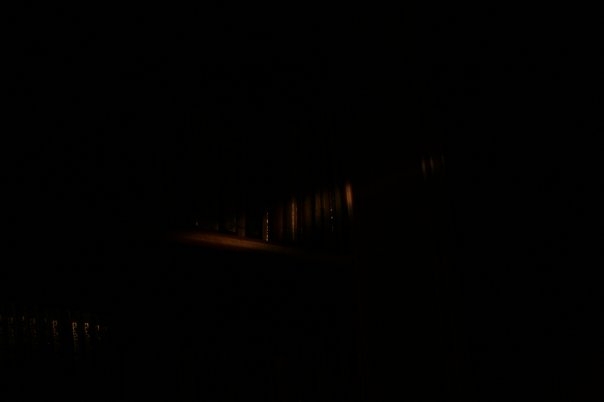An excerpt from I, the Emisor / Ethics / Capital Punishment- The Sanctity of Life.
I do not hold the absurd belief that life in and of itself is sacred, not in a sense that transcends the marvel that is the biological mechanisms that allow it. That is not to say that the sustainability and qualities of life should not be regarded with respect and empathy, but the latter terms are very human and coherent phenomenons that aid in procuring a tolerant society without having to resolve to otherworldly injections of qualitative components.
The concern propelling the notion of the sanctity of life appears to be more a fear of death than a concern for the qualia of living. It is the natural empathetic response to death's potential immediacy embodied in the form of dialect identified with those of supernatural inclinations and used loosely to convey the instinctive feeling of disapprobation experienced at life's disruption.
A naturalistic approach may adequately explain the seemingly inherent feeling of disapprobation at witnessing the imposed death of another being. An empathy that is endowed to the general majority of the human species by the strenuous processes of natural selection. Either lacking this emotional reaction must have been disadvantageous at a certain point in human evolution or that the trait of being able to experience such an emotional reaction occurred as a result of other processes and was never a significant disadvantage, probably both. This does not necessarily imply that this is also true in modern societies or all societies for that matter, however, I would argue that it does hold sway in most as it is disruptive for a society to keep these anomalies at its midst and that the social structures tend to both actively and passively isolate individuals lacking in empathy.*
Suppose however, that the sanctity of life is a notion that is concerned with the experience of living rather than the fear of experiencing it end- I would not have remarkable objections to the implementation of this term other than the religious connotations it encourages.
In consideration of the claim that sanctity is an immeasurable element that does bear implications on the quality of human decisions I would press the point of its irrelevance in light of circumstance. To the most advocative of this notion even the "pricelessness" of life could be hardbought when appraising one life against or aside another, especially if one displays intent to rid the other of its sacredness/life or if one displays more favorable characteristics. Thus, quantitative terms are introduced to a qualitative argument not making it void but making it fallible. The sanctity of life must now be filtered through a complex compilation of enquiries regarding the worth of its nature. (In a given a circumstance could one life be more sacred than two? etc.) In attempting to answer these questions the advocator of the notion of sanctity will either resolve to naturalistic causes- making the case irrelevant to begin with or adhere to an absolutist approach- making it ridiculously unfalsifiable and non-negotiable to which the objection is a utilitarian one. A theoretical absolute remains theoretical and as a theoretical tool it is not negligible, but it does not manifest as a direct form of physical influence, rather- an indirect one.**
________________________________________________________________________________
*Is this not an act of apathy? "Sympathy" following section.
**On the rationality of metaphysical concepts: ch. 3 'Utilitarian Metaphysics' from 'Critique of Religion'.
